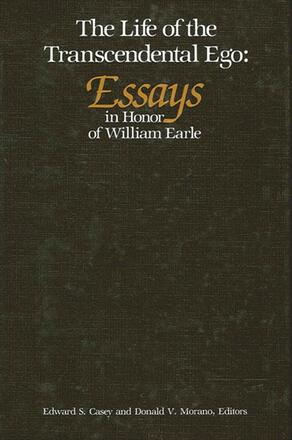
Life of the Transcendental Ego
Essays in Honor of William Earle
Alternative formats available from:
Description
The Life of the Transcendental Ego presents essays by a number of distinguished writers in the continental tradition of philosophy. The essays include problems in transcendental philosophy, the nature of autobiography, the validity of existentialism, the possibilities of phenomenology, as well as focused discussions of concrete issues in aesthetics and ethics.
Edward S. Casey is Professor of Philosophy at the State University of New York at Stony Brook. Donald V. Morano is a lawyer in Chicago and author of numerous essays on existential themes and the philosophy of law.
Reviews
"The essays are well written, interesting, and to the point. Anyone concerned with phenomenological or existential philosophy could profitably read the book, as would those with a more general philosophical interest. " — Edward Goodwin Ballard
"It contains a very fine assortment of well-written essays that are clearly thought out. Several provide important comment on, and retrospective estimation of, the influence of phenomenology and existentialism on academic philosophy in the U. S."— Fred Kersten